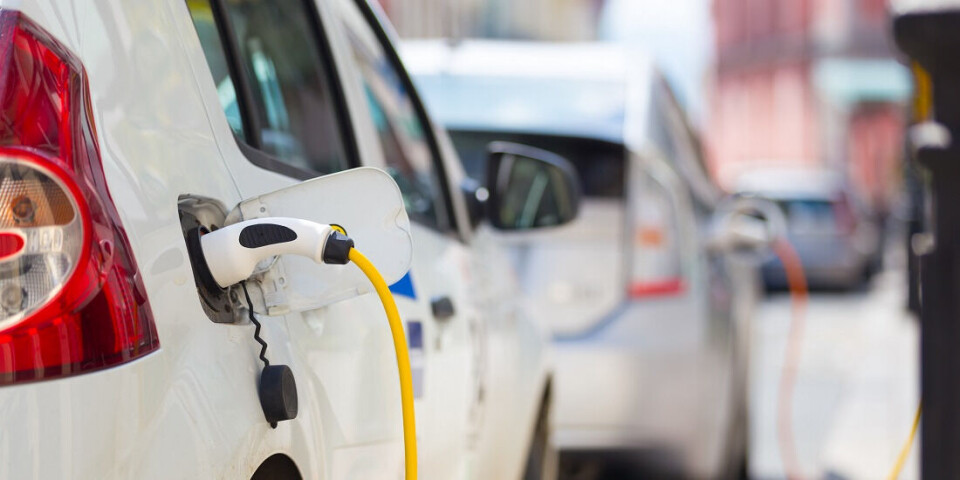THIS CONTENT IS BROUGHT TO YOU BY NTNU Norwegian University of Science and Technology - read more

Solid-state batteries could soon make electric cars better and safer
Researchers in Norway are making these batteries better.
Today’s electric cars use large lithium-ion batteries, which work fairly well.
They can store a fairly high amount of energy in relation to their weight. They also don’t need to be completely discharged each time before being recharged, so you can usually put the car on charge when it suits you without worrying about whether you are damaging the battery.
But these batteries still have low energy density for emerging applications and electric vehicles. They are also both unstable and flammable, so it is perhaps not so surprising that the search is on for alternatives.

“Solid-state batteries might be the future for tomorrow’s electric cars,” Daniel Rettenwander says. He is a professor at NTNU’s Department of Materials Science and Engineering.
Rettenwander is part of a research team studying how solid-state batteries can be charged much faster, and become safer and easier to recycle.
The findings may be important as part of the effort to get more people to use solid-state batteries, and as a technology that can later be commercialised.
Advantages of solid-state batteries
Solid-state batteries have several advantages compared to lithium-ion batteries. They can have a higher voltage and a higher energy capacity for storage in relation to weight and volume.
Such batteries are currently used in devices like pacemakers and portable electronics, where it is especially practical for the batteries to be small. It is also easier to manufacture these small batteries. For large batteries, the production and technology are still too expensive.

Solid-state batteries can also be safer than conventional lithium-ion batteries. Among other characteristics, they tolerate much greater temperature fluctuations than lithium-ion batteries do. This is especially nice on cold winter mornings in the garage or on long trips.
Additionally, solid-state batteries are less flammable than lithium-ion batteries because they do not contain a liquid electrolyte. These electrolytes are charged substances that are used to conduct electricity. As their name suggests, solid-state batteries use solid substances instead of the far more common liquid electrolytes.
Faster to recharge
However, solid-state batteries could be charged faster than they are today. One challenge is that it is more difficult to use solid materials than liquids to transfer electrical charges.
“We have investigated how we can charge solid-state batteries more efficiently at a much higher current, which reduces the charging time of any electronic device or electric vehicles using these batteries,” Florian Flatscher says. He is a PhD candidate who worked with Rettenwander and Verena Reisecker from Graz University of Technology.
The results from this research can also contribute to solid-state batteries being easier to recycle.
Contributes to safer batteries
The researchers also know more about why solid-state batteries break down.

“Solid-state batteries also use lithium. We see that lithium activity can play a critical role when solid-state batteries stop working,” Rettenwander says.
This is completely new insight, and is a step towards understanding the underlying mechanisms behind so-called 'dendrites'. These pose a problem in solid-state batteries.
In this context, dendrites are special lithium particles that can form due to corrosion and mechanical stress. These lithium particles can in turn short-circuit conductors.
“We now know more about how we can prevent such dendrites from forming. That’s a real advantage for safety,” Flatscher says.
Solid-state batteries are more expensive than lithium batteries, but this can change when mass production starts. Several manufacturers have announced that they are developing cars with solid-state batteries.
The first ones could be on the market as early as next year.
Reference:
Reisecker et al. Effect of pulse-current-based protocols on the lithium dendrite formation and evolution in all-solid-state batteries, Nature Communications, vol. 14, 2023. DOI: 10.1038/s41467-023-37476-y
More content from NTNU:
-
Fish farming is least harmful to the seabed in the north
-
Study: Centralising hospitals has reduced birth mortality
-
Early testing of schoolchildren: “We found absolutely no effect”
-
This determines whether your income level rises or falls
-
Why is nothing being done about the destruction of nature?“We hand over the data, but then it stops there"
-
Researchers now know more about why quick clay is so unstable





































